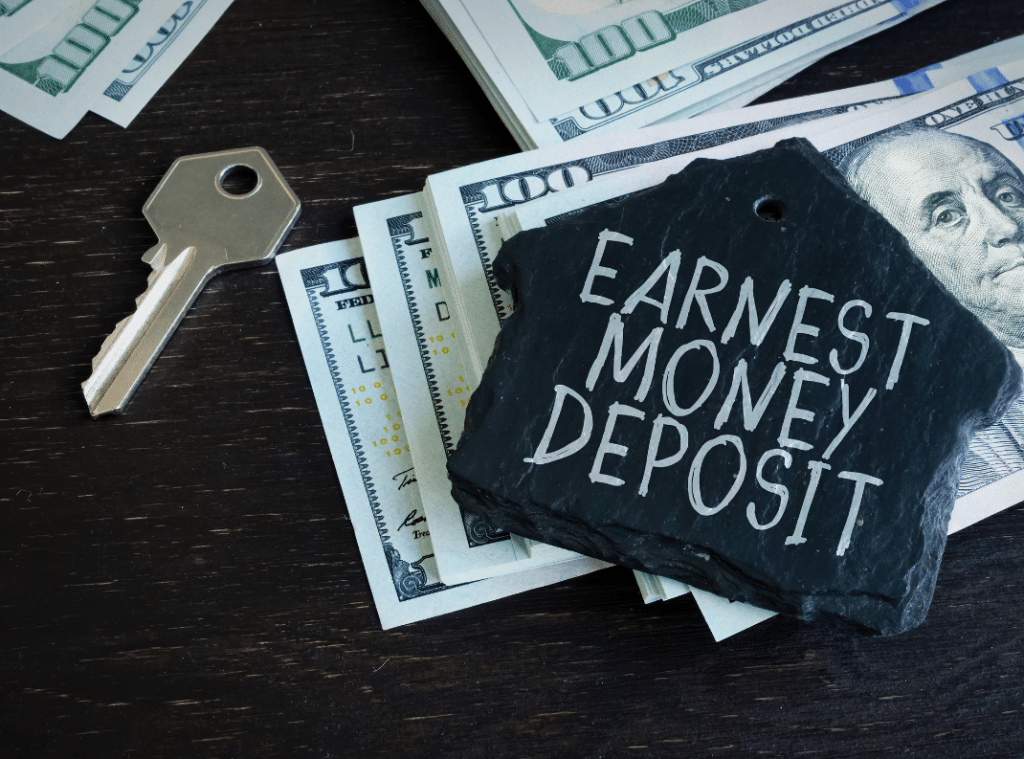- 💰 Earnest money is a good faith deposit made by a home buyer to show commitment to the purchase.
- 🏡 It signals seriousness to the seller, encouraging them to take the property off the market.
- 🛡️ Earnest money is held by a neutral third party until the purchase is finalized or terminated.
- 📅 Typically, earnest money is due within three days of agreeing to a purchase contract.
- 💸 Forfeiting earnest money can happen if the buyer backs out without a contingency.
- 💼 The amount usually ranges from 1% to 3% of the home’s purchase price, sometimes more in competitive markets.
- 🏦 Proof of deposit is needed for the lender to ensure the buyer can cover closing costs and complete the transaction.
- 👍 The deposit is applied towards the down payment and closing costs upon finalizing the purchase.
- 🔒 To protect the deposit, use an escrow account, understand contingencies, and maintain clear communication with agents and lenders.
- 🤔 Earnest money can be refundable if the deal falls through due to contingencies like home inspection or financing issues.
When embarking on the exciting journey of purchasing a home, it’s crucial to understand the various financial components that play a role in securing your dream property. One such component that often confuses first-time buyers is earnest money. In this comprehensive guide, we’ll delve into what earnest money is, why it’s important, and how you can manage it effectively during your home-buying process.
What is Earnest Money?
Earnest money is an upfront deposit that a home buyer makes as a show of good faith when intending to purchase a property. This deposit serves as a clear signal to the seller that you are serious about your offer and committed to proceeding with the transaction. It provides the seller with the confidence to take the property off the market and move forward with the sale.
Key points:
- A sign of commitment and good faith.
- Encourages the seller to stop accepting other offers.
How Earnest Money Works
After an offer is accepted, the earnest money is transferred to a neutral third party, often an escrow company or real estate attorney. This entity holds the deposit securely until the purchase is finalized or terminated. Typically, the earnest money deposit is due within three days of agreeing to a purchase contract.
Key points:
- Held by a neutral third party.
- Due within three days of signing the purchase contract.
The Significance of Earnest Money
The primary purpose of earnest money is to show the seller that the buyer is serious and financially prepared to complete the purchase. It bridges the trust gap between the buyer and the seller, ensuring both parties are committed to moving forward. Additionally, the amount of earnest money can influence the seller’s decision, especially in competitive markets.
Key points:
- Establishes trust between buyer and seller.
- Influences seller’s decision, especially in competitive markets.
Amount of Earnest Money
The typical range for an earnest money deposit is between 1% and 3% of the home’s purchase price. However, this can vary depending on the local real estate market conditions. In highly competitive markets, a higher earnest money deposit can make your offer more attractive to the seller.
Example:
- For a $300,000 home, the earnest money deposit might range from $3,000 to $9,000.
Managing Your Earnest Money
Proper management of your earnest money deposit involves several critical steps. Here’s how you can ensure your deposit is handled correctly and securely:
1. Use an Escrow Account
Always ensure that your earnest money is deposited in an escrow account managed by a reputable third party. This safeguards your money and ensures it is only released according to the terms of your purchase agreement.
2. Understand Contingencies
Include and fully understand contingencies in your purchase contract. Common contingencies include home inspections and financing. These clauses protect your earnest money if certain conditions are not met.
3. Provide Proof of Deposit
Your lender will require proof of your earnest money deposit to ensure you have the funds necessary to close the deal. This can be done using a receipt from the escrow holder and bank statements showing the withdrawal.
4. Communicate Clearly
Keep open lines of communication with your real estate agent and lender. They can provide guidance and help you navigate any issues that arise during the transaction.
Key points:
- Use an escrow account for security.
- Understand and include contingencies.
- Provide proof of deposit to your lender.
- Maintain clear communication with agents and lenders.
When Earnest Money is Forfeited or Refunded
While earnest money can be refundable, it is also possible to lose it under certain conditions. If you back out of the deal without invoking a contingency, the seller can keep the deposit as compensation for the lost opportunity. However, if the deal falls through due to unmet contingencies, like a failed home inspection or financing issues, the earnest money is typically refunded to the buyer.
Scenarios for Forfeiture:
- Backing out without a contingency.
- Not meeting contract terms after the expiry of contingencies.
Scenarios for Refund:
- Deal falls through due to a failed home inspection (contingency satisfied).
- Financing issues prevent the purchase (contingency satisfied).
Conclusion
Earnest money is an essential part of the home-buying process, protecting both the buyer and the seller and facilitating a smoother transaction. By understanding how it works, the importance of contingencies, and how to safeguard your deposit, you can navigate this crucial step confidently. Always rely on professional guidance from your real estate agent and lender to ensure you manage your earnest money deposit effectively.






